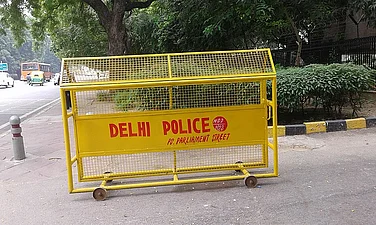When one of the highest-paid employees in the country struck work last fortnight, they had few sympathisers. Pilots of Air-India (A-I) left thousands of passengers stranded when they went on strike. Reason: they could not fly to SARS-hit destinations or fly on any route in an aircraft manned by cabin crew who had been to the Near East since the virus broke out. .
For once the aviation ministry decided to take on the pilots. And the hardline yielded results. Late night on May 1 the strike was called off. Over 100 pilots reported for duty. The derecognised Indian Pilots Guild (IPG), has officially called off the strike although the A-I management has made it clear that it will not revoke the suspension orders against those who spearheaded the strike.
From the outset, no one was convinced by the pilots’ arguments. The fear of the SARS virus had hit all routes—Singapore, the Far East, North America, Europe and Africa. The (IPG), which is behind the agitation, has by now set a world record of sorts—A-I was the only airline in the world grounded by SARS. The worst hit were the Gulf routes that account for 90 per cent of A-I’s profits.
A-I officials say the pilots’ case was preposterous. Consider these facts:
- The who and International Air Travellers Association (IATA) have clarified there is no SARS threat during transit in both Singapore and Hong Kong.
- The iata has clarified that only A-I pilots are refusing to fly because of SARS.
- The Indian Airlines (IA) is flying to ‘affected’ destinations like Singapore.
The real provocation for the strike—SARS was only a ruse—came from a government decision to train pilots for cat-111 instrument landing systems. The IPG’s terms for training was Rs 75,000 as compensation! "Ever since this order, the A-I pilots have been looking for excuses to launch an agitation. SARS, therefore, came at the right time," says A-I spokesman Jitendra Bhargava. Adds aviation consultant Brij Bhardwaj: "What is happening is the result of a series of old agreements, which heavily favoured the pilots. Since you can’t produce pilots overnight and are not willing to hire pilots internationally, A-I is open to blackmail."
Blackmail is a term many in the industry use to describe the strike. Points out Subhash Goyal, chairman of Stic Travels and head of the expert committee of assocham on aviation and tourism: "A-I pilots will always strike when the country needs them the most. A number of them are on the payroll of foreign airlines and strike work deliberately so that traffic moves over to the competition."
To tackle the crisis contingency operations were put in place. Executive pilots were roped in. Some recently retired pilots with valid licences were recalled. A-I executives kept busy tying up makeshift and temporary bilaterals with other international carriers, which could endorse A-I tickets. Indian Airlines was also requested to fly special flights.
With the striking pilots returning to work without much fuss, the airline management has clearly proved a point. This is the first time that commercial pilots have not had their way with the establishment. And that is good news.


























